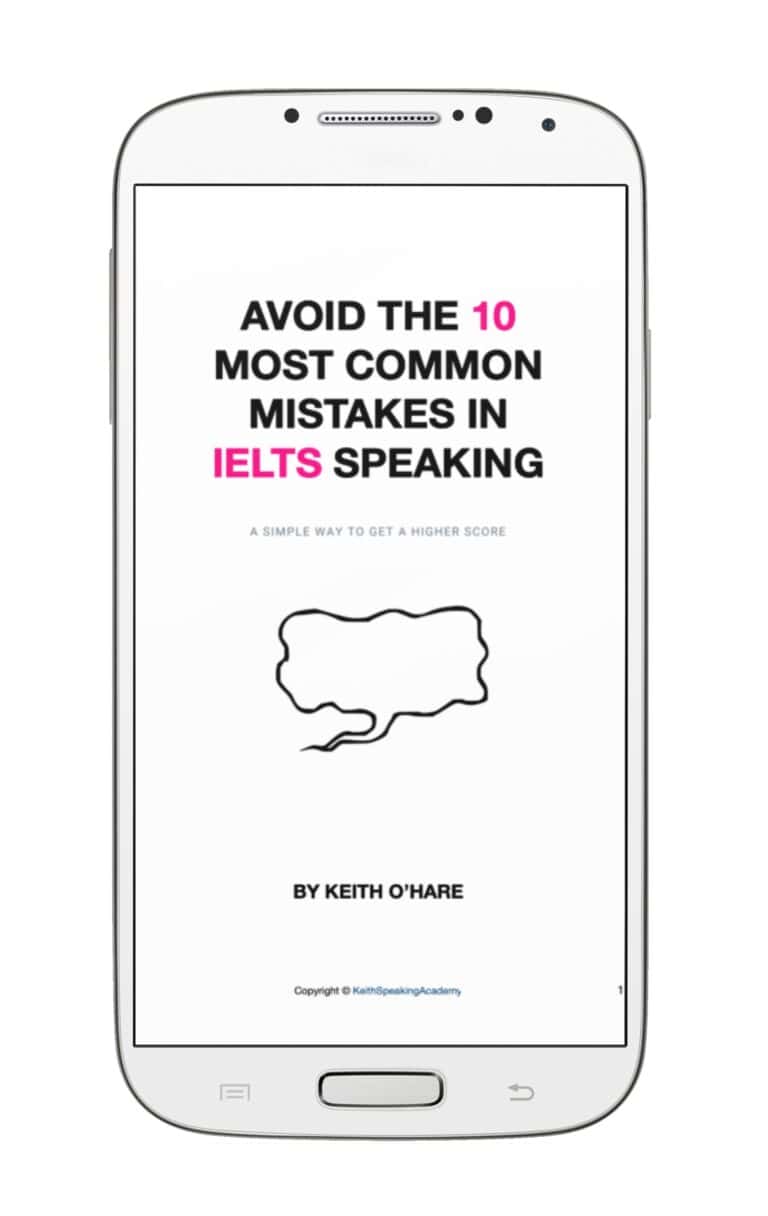
Introduction

Keith O'Hare
Trinity Dip TESOL, MSc Digital Education (U.K.) A lover of languages, teaching and lasagna!
What you will Learn
IELTS Vocabulary: Comedy
It’s a comedy (n.)
I like comedy (adj.) shows.
I like comedies (genre/type)
He is a hilarious comedian (person)
He is a professional comic (person) (also a magazine)
That pay rise is comical (adj.)
To laugh (v.) at something/someone
A laugh (n. – countable).
e.g. We had a laugh when John told a joke
Laughter (n. – uncountable, more general meaning)
e.g. I heard laughter in the classroom
Making people laugh
Here are some useful phrases you can use to talk about this.
I like to mimic / imitate people (=copy)
I am good at doing impersonations of famous people (= imitate/copy the voice of mannerisms of someone)
A parody – a kind of humor where you imitate someone to make fun of them
Yes, it helps reduce the tension
It’s a great way to relieve the stress
I am into telling jokes
I love to crack jokes when I am with friends
That cracks me up = it makes me laugh
Yes, I have a knack for making people laugh (= I have a talent for it)
I enjoy a good laugh, but I am not good at telling jokes
Well, I try to tell jokes, but whenever I get to the punchline, I usually mess it up!
The punchline of a joke is the last line – where the joke is ‘revealed’
Watch The Full Lesson!
Laughing with friends
Here are some useful phrases you can use to talk about this.
It can help strengthen the bond between us
We can build a deeper connection
It can help determine if we are in the same boat (= on the same wavelength = have the same things in common)
It creates a good vibe for the group
It helps us all unwind
We need to take things with a pinch of salt! = not too seriously!
Types of Comedy / Humour
- Parody (n.) = when you imitate someone
- Satire (n.) = ridicule or mock / make fun of someone
- Visual humor = comedy that doesn’t rely on words
- Slapstick (n.) = visual humor, usually falling, hitting, knocking things.
- Stand up comedy = comics telling jokes on stage
- Observational comedy = giving a fun twist to everyday life routines
- Sitcoms = Situational Comedy (e.g Friends, Big Bang Theory)
- Musical comedies
- Romantic comedies
- Wit (n) = comedy that uses a play on words or a ‘pun’
A play on words or a pun is using the second meaning of a word to make the story funny.
e.g. What is black and white and red (red) all over? A newspaper!
This joke uses the 2 meanings of the sound ‘red / read’ which can mean
the color or the past of the verb to read.
Check out different types of British Humour in this link
http://greatbritishmag.co.uk/uk-culture/10-types-of-british-humour-explained/
Vocabulary and Idiomatic expressions: Topic Jokes and Laughing
To tell/crack a joke
Get the joke / See the joke = understand it
Take a joke = to be able to laugh at a joke against yourself
Make jokes
Do something as a joke = not do it seriously
My joke raised a smile = made someone laugh
My joke got a few laughs
To joke about something = not take it seriously
I was only joking = say something that is not true, but funny
That’s no joke = serious or difficult
To have a (good) laugh
Laugh-out-loud (adj) = extremely funny
A laugh-out-loud moment
All of the following mean to laugh out loud
- I was in stitches
- I split my sides laughing
- I burst out laughing
- I was laughing in the aisles
It was a barrel of laughs = it was a lot of fun
To laugh all the way to the bank = to make a lot of money
To laugh something off = to laugh about it / not worry about it
e.g. When I didn’t get the score I wanted, I decided to just laugh it off
To have a good/twisted/dry/dark sense of humor
To laugh (v.) loudly / aloud / out loud
Laugh scornfully / contemptuously (without respect)
A laughing stock= a person that everyone laughs at because they have done something stupid
More Free IELTS Speaking Lessons
If you liked this lesson, leave a comment below!
There are more lessons you can follow in the links below too.
Climate Change in IELTS Speaking. Learn essential vocabulary for this topic, as well as how to discuss causes of and solutions to Climate Change.
News in IELTS Speaking. Learn vocabulary of national, international and personal news, as well as tips on IELTS Speaking Part 2
Mobile phones in IELTS Speaking. Learn vocabulary of phones and ideas to talk about how we use phones in our lives.


Thank you so much sir for the useful information .l really love the way you teach IELTS speaking and the content you shared is so engaging .Sir you`re a great teacher ,l improved a lot in IELTS speaking using all your materials. l always emulate you .
So pleased to hear that and thanks for studying with me!
Thank you Keith sir , we as students will always be lacking of words to give you thanks for your generous efforts.Thanks a million sir ,God bless you.
Thanks for your comment, I am so glad my work can help you.